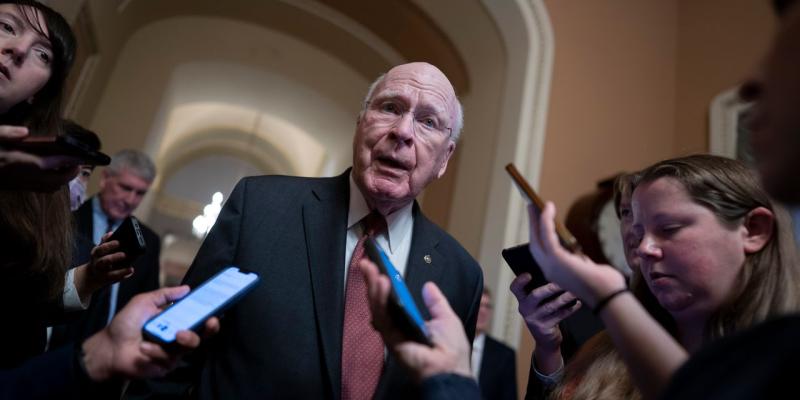Lawmakers Unveil Spending Package in Race to Avert Shutdown - WSJ
By: Siobhan Hughes and Lindsay Wise (WSJ)



WASHINGTON—Lawmakers early Tuesday unveiled a spending bill for fiscal 2023 as they race to pass the measure by the end of the week in the last act of the Democratic-controlled Congress.
The bill is the product of months of behind-the-scenes haggling and carries an additional $44.9 billion to support the war in Ukraine, $40.6 billion for disasters like drought and hurricanes as well as special money earmarked for projects in lawmakers' home districts. It includes policy provisions, such as updating the 1887 Electoral Count Act to try to make it harder to block the certification of a presidential election and avoid a repeat of the Jan. 6, 2021, attack on the Capitol.
The bill includes $858 billion in military spending, $45 billion more than President Biden had requested and up about 10% from $782 billion the prior year. Senate negotiators said it also includes $772.5 billion in nondefense discretionary spending, up almost 6% from $730 billion from the prior year.
Congress must pass the spending package through both chambers before the expiration of an interim funding bill that runs through Dec. 23. Because of the delays built into the Senate’s process, quick enactment will depend on whether all 100 senators can agree to forgo debate time and proceed to a final vote. The Senate is expected to vote first, followed by the House, where leaders have told lawmakers to expect a vote late Wednesday at the earliest.
“From funding for nutrition programs and housing assistance, to home energy costs and college affordability, our bipartisan, bicameral, omnibus appropriations bill directly invests in providing relief from the burden of inflation on the American people,” Senate Appropriations Committee Chairman Pat Leahy (D., Vt.) said in a statement. “The choice is clear: We can either do our jobs and fund the government, or we can abandon our responsibilities without a real path forward.”
Senate Republicans said that the increases in military spending represented GOP victories, claiming that the deal broke a yearslong’ bargain to ensure parity between increases in defense and nondefense spending. That is because inflation as measured by the consumer-price index is up 7.1% from a year earlier , and while the defense-spending increase exceeded that level, the nondefense spending increase fell short of the inflation rate.
“Since day one, I have insisted on increasing defense funding well above the president’s request without similar increases in wasteful liberal nondefense spending,” said Sen. Richard Shelby (R., Ala.), the top Republican on the Senate Appropriations Committee. “This process was far from perfect, but ultimately it allowed Republican redlines to be adhered to and because of that I will urge my colleagues to support this package. We need to do our job and fund the government.”
The bill also would ban the downloading of TikTok on government-issued smartphones and other devices, expanding to all government devices a ban currently imposed by the Pentagon and some other U.S. agencies.
House Republican leaders have urged their rank-and-file members to oppose the package, arguing that negotiations should be pushed into next year, when GOP control of the chamber will give it more leverage. House Minority Leader Kevin McCarthy (R., Calif.) is leading the opposition as he seeks to cajole members to support his bid to be elected House speaker next year.
But because a majority of Democrats can pass the bill without Republican support, much of the focus is on the Senate. Top Senate Republicans are calling for passage, saying that they limited nondefense spending on domestic programs through their negotiations, and they appear to have the votes to overcome the 60-vote threshold needed to pass most legislation. The main question is whether Senate Republicans opposed to the bill will exercise their power to slow down the voting beyond Dec. 23, the last day of government funding.
“I object to a budget that nobody will see to the very end, thousands of pages long, created by a few people basically in secret,” Sen. Rand Paul (R., Ky.) told reporters on Monday night, referring to the closed-door negotiations over the spending bill. “I see no value to this process. We’re ruining the country.”


